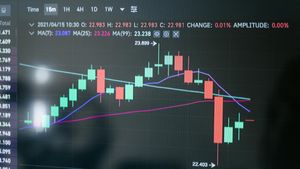The ASX 200 index took a significant hit on Monday as fears of a global trade war, following the announcement of new tariffs by the United States, sent shockwaves through the market. After US President Donald Trump declared tariffs of 25% on Canada and Mexico, alongside a 10% levy on China, local investors braced for chaos.
The opening on February 3 saw the S&P/ASX 200 tumble by 159.7 points, or 1.87%, landing at 8,372.6 points as of 10:30 AM AEDT. Observers noted the pronounced downturn across the board, with every sector reporting losses. ANZ Senior Economist Adelaide Timbrell commented, "Some retracement of the initial move suggests markets are putting some weight on the possibility..." indicating some hope among investors for potential exceptions to the tariffs.
The commodities market also felt the blow, with the ANZ China Commodity Index dipping by 0.8%. Industrial metals plummeted by 2.3%, but precious metals gained 1.1%, reflecting investors' flight to safety amid mounting uncertainty. Gold was priced over US$2,800 ($4,551) per ounce, demonstrating its appeal as a hedge against volatility.
The fallout was immediate as Canada announced retaliatory 25% tariffs on US$155 billion of US goods, eliciting swift reactions from the financial markets. Mexican officials indicated plans for their own retaliatory measures, echoing fears of spiraling economic warfare between nations. Meanwhile, China signaled intentions to contest Trump's tariffs at the World Trade Organization.
Timbrell elaborated on the ramifications of the tariffs, stating, "If the tariffs were to remain in place indefinitely, they would represent an enormous negative shock for the Canadian and Mexican economies," explaining how significant portions of these nations' GDP are tied to exports to the US. With much attention on the US market, analysts warned of inflationary pressures rising within the country due to the tariffs. "The tariffs will raise the effective average tariff rate from around 3% to nearly 11%," Timbrell noted.
This tariff imposition isn't just impacting the US and its neighbors; it's sending ripples across global markets, with Australia being no exception. Cherelle Murphy, chief economist at EY, stated, "While we in Australia are not directly affected by these tariffs, indirectly it's quite possible we can be. We have a number of manufacturers...who import materials from China."
By late morning, the ASX was down approximately 2% as broad-based selling intensified, particularly affecting the banks and mining sectors. The mining index dropped by 2.2%, marking its steepest decline in six weeks. Major financial entities plummeted as CBA lost 2.1% and Suncorp weakened by 2.9%. Only twelve of the top 200 listed companies managed any gains during this tumultuous trading session.
Particularly hard-hit was Westgold Resources, which saw its shares slide by 12.2% after revising down its 2025 production guidance. Fisher and Paykel Healthcare also felt the strain, with shares dropping 5.7% due to direct dependencies on Mexican manufacturing.
Market analysts expect this turmoil to persist as trade relations are threatened on multiple fronts. Tony Sycamore, market analyst at IG, expressed concerns: "The surprise for markets is...that Canada and Mexico reacted immediately, and others...may follow, resulting in sharp contraction in global trade." The uncertainty surrounding global trade dynamics continues to weigh heavily on investor sentiment.
Economic tensions escalated even beyond the market. Reports noted the Australian dollar losing ground against the US dollar, with traders opting for the perceived safety of USD assets. The currency fell nearly 0.9% to 61.57 US cents, leading some experts to speculate about potential future lows akin to those witnessed during the pandemic.
Internationally, the sentiment reflected similar concern; Japan's Nikkei index fell by 2.2%, and New Zealand's NZ 50 index registered considerable declines. The severity of Trump's tariff policy was felt across oceanic trade routes and significant global suppliers.
Elsa Lignos from RBC Capital Markets offered insights, stating, "Trump's gone ahead with tariffs on the US' three largest trading partners—this is a big shock...that we weren't priced for." She highlighted the potential for deep economic fallout as trade routes re-evaluate their viability under rising tariffs.
An unexpected aspect of the tariffs was the simultaneous removal of exemptions for small-value imports, intensifying the impact felt by e-commerce sectors. The expected increase of consumer goods prices raises more questions about future spending trends amid uncertain economic conditions.
Overall, the initiation of tariffs signal the beginning of what many experts predict could be protracted economic tensions, ushering the global economy, and particularly markets like the ASX, through turbulent waters. The sheer unpredictability of Trump's trade policies combined with the swift retaliation of partner nations has left investors scrambling, marking February 2023 as one of uncertainty and cautious strategies.



